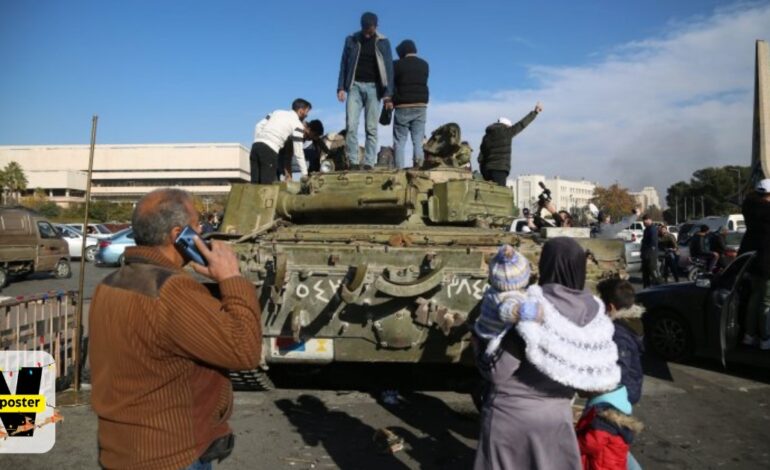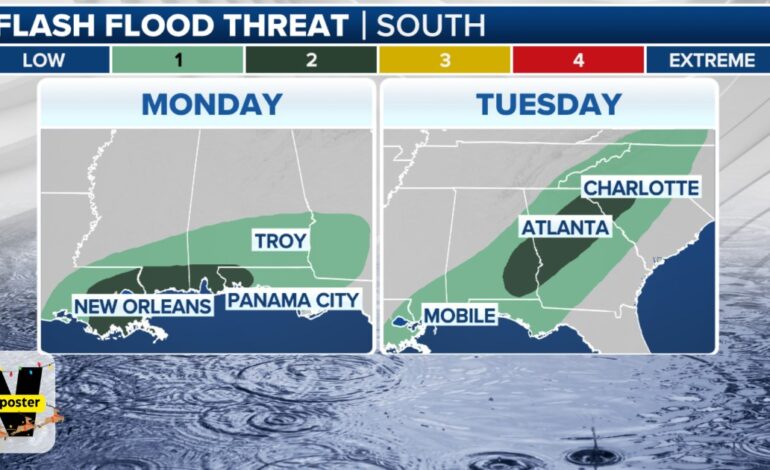
U.N. Security Council Convenes Emergency Session to Address Crisis in Syria Following Collapse of Bashar al-Assad’s Regime
U.N. Security Council Convenes Emergency Session to Address Crisis in Syria Following Collapse of Bashar al-Assad’s Regime; Global Powers Scramble for Influence in the Wake of Dramatic Shifts in Regional Power Dynamics
The international community is on high alert following the unexpected collapse of Bashar al-Assad’s regime in Syria over the weekend, which has resulted in the United Nations Security Council calling an emergency meeting to address the rapidly evolving situation. At the request of Moscow, Russia’s First Deputy Permanent Representative to the United Nations, Dmitry Polyansky, confirmed on social media that an urgent session will take place on Monday, focusing on critical regional developments that have the potential to reshape the Middle East’s geopolitical landscape.
In what could be considered one of the most significant shifts in regional power dynamics in recent years, the sudden downfall of Assad’s regime has led to a flurry of diplomatic and military activity across Syria and neighboring countries. The collapse comes after years of devastating civil war, foreign intervention, and the brutal suppression of opposition forces. As the Syrian government’s power has crumbled, the U.N. is now faced with the daunting task of managing a rapidly changing landscape that could have lasting global implications.
The United Nations Security Council’s emergency session will primarily focus on several key issues, with Moscow pushing to ensure that the U.N. maintains its role in preserving the decades-old ceasefire agreement between Israeli and Syrian forces in the Golan Heights. This ceasefire, which was established following the 1974 Yom Kippur War, has been a cornerstone of regional stability, albeit a fragile one. The recent escalation, including Israel’s seizure of a buffer zone in the Golan Heights, has brought the situation to a boiling point, further exacerbating an already tense and volatile region.
Israel’s Role and Tensions in the Golan Heights:
As Syria’s government authority weakens, Israel has seized the opportunity to assert control over strategic locations in the Golan Heights, a region both Syria and Israel have long disputed. Israel’s actions, including the occupation of the buffer zone, have sparked international concerns regarding the stability of the ceasefire that has been in place for half a century. The U.N. Disengagement Observer Force, established in 1974 to monitor the ceasefire between the two nations, has become a key player in ensuring that hostilities do not resume.
Israeli Defense Forces (IDF) have cited security concerns as justification for their moves, particularly in light of the worsening security situation in Syria and the threat posed by various factions, including extremist groups. However, Israel’s actions have been met with vocal opposition from Syrian officials, who accuse Israel of exploiting Syria’s vulnerability to advance its territorial claims.
The U.N. Security Council’s emergency session is expected to delve deeply into Israel’s actions and assess whether the peacekeeping mandate established by the U.N. still holds relevance given the rapidly shifting power dynamics in Syria. Diplomatic sources suggest that Russia will push for a reaffirmation of the U.N.’s role in the region, hoping to avoid the complete breakdown of the ceasefire agreement.
Military Operations and the U.S. Involvement:
Meanwhile, the United States has been heavily involved in military operations targeting ISIS in Syria, a development that has drawn significant attention due to its implications for U.S.-Syria relations. U.S. forces have conducted multiple airstrikes against key ISIS leaders and camps in central Syria, aiming to prevent the group from regrouping in the wake of Assad’s collapse. These airstrikes have further complicated the already tense situation on the ground, as regional powers vie for influence in the aftermath of the regime’s downfall.
The U.S. military operations, while focused on counterterrorism, are part of a broader strategy by the Biden administration to stabilize Syria and ensure that extremist groups do not gain a foothold in the region. However, these operations have also led to diplomatic friction with other regional actors, including Russia, Iran, and Turkey, all of whom have vested interests in Syria’s future.
Turkey’s Role and the Regional Implications:
Turkey, a key player in the Syrian conflict, has also expressed concern over the power vacuum left by Assad’s regime. Turkish President Recep Tayyip Erdoğan has been in close communication with U.S. Defense Secretary Lloyd Austin, urging for the protection of civilians and adherence to international humanitarian law. Turkey has been deeply involved in the Syrian conflict, both through military operations against Kurdish forces in northern Syria and through support for Syrian opposition groups.
Turkey’s position in the region has been further complicated by its relations with the U.S. and Russia. The U.S. has long been a supporter of Kurdish forces in Syria, while Turkey views these forces as terrorist groups linked to the Kurdish Workers’ Party (PKK), which it has fought for decades. As such, Turkey’s actions will be closely scrutinized as the U.N. Security Council discusses the evolving situation.
FBI’s Role and Ongoing Efforts to Support Syrian Opposition:
As part of its broader strategy, the Biden administration has been working closely with Syrian opposition groups, exiled factions, and regional leaders to help guide Syria through a transition away from Assad’s brutal regime. U.S. officials have emphasized their commitment to supporting a stable, independent Syria that is governed by the rule of law and human rights. This effort has included diplomatic outreach to opposition forces and humanitarian support to those displaced by the ongoing conflict.
The FBI has also been involved in efforts to combat the spread of extremist ideologies in the region, working in collaboration with international intelligence agencies. The collapse of Assad’s regime has led to a surge in the movement of fighters, with some shifting their focus to other areas of the Middle East, including Iraq and Lebanon. The U.S. government is concerned that the absence of a strong central authority in Syria could lead to the resurgence of terrorist groups like ISIS, which once controlled large parts of the country.
The Path Forward:
As the U.N. Security Council meeting unfolds, all eyes are on how the international community will respond to Syria’s unraveling political landscape. The collapse of Assad’s regime has created a power vacuum, and the vacuum has sparked a renewed global scramble for influence over the country’s future. While countries like the U.S. and Israel have taken aggressive military and diplomatic steps to safeguard their interests, the role of the U.N. in fostering a peaceful resolution to the conflict will be critical.
In conclusion, the situation in Syria remains fluid, and the outcome of the U.N. Security Council’s emergency session will have far-reaching implications not just for Syria but for the broader Middle East and international peace efforts. As the international community grapples with the collapse of one of the longest-standing autocratic regimes in the region, there is an urgent need for coordinated action that prioritizes civilian protection, humanitarian aid, and the prevention of further instability.
The next few weeks will be critical in shaping Syria’s future, as well as the role of global powers in the Middle East. The resolution of this crisis, while uncertain, will undoubtedly have consequences for years to come, as the international community seeks a path forward for a post-Assad Syria.



